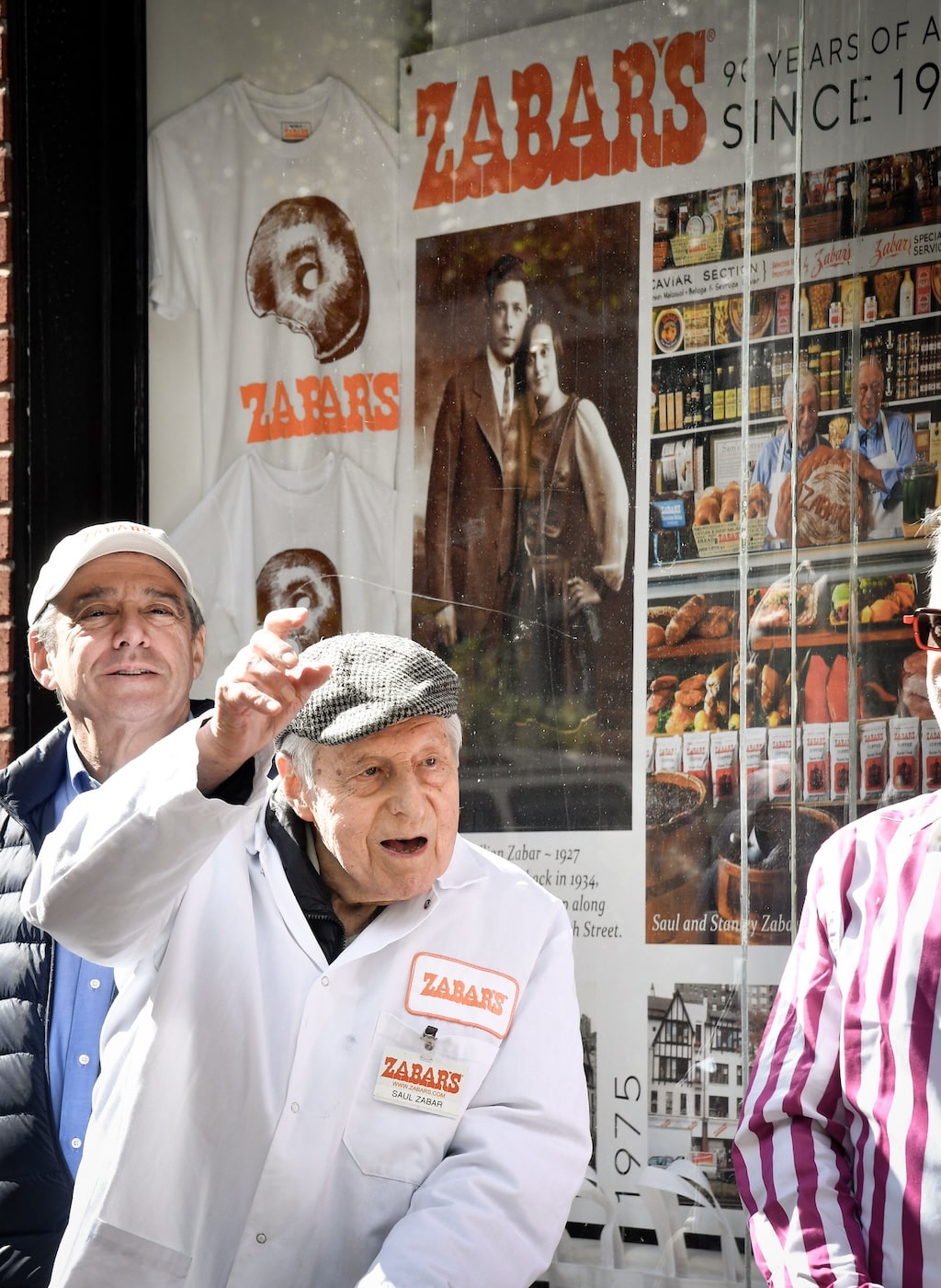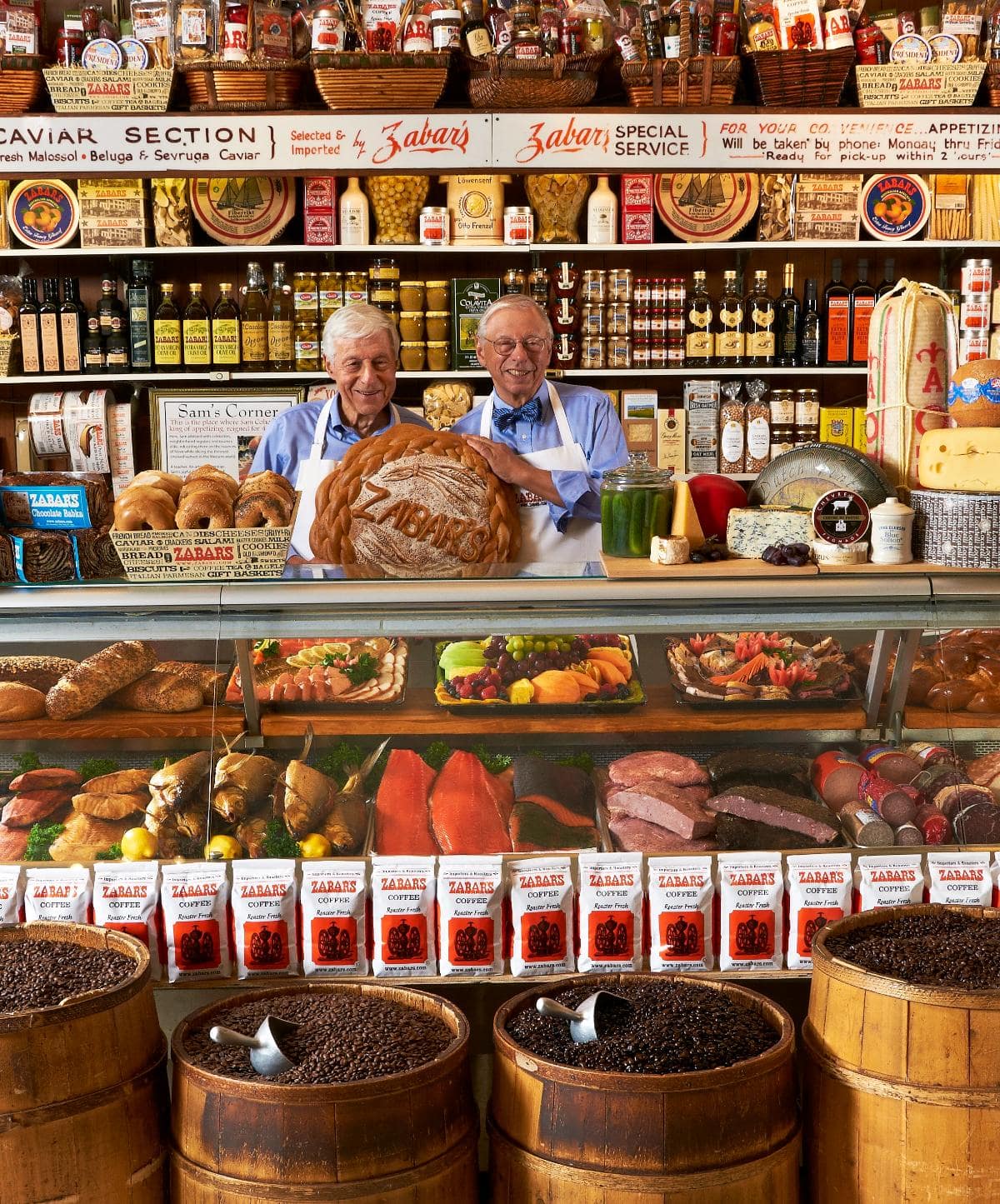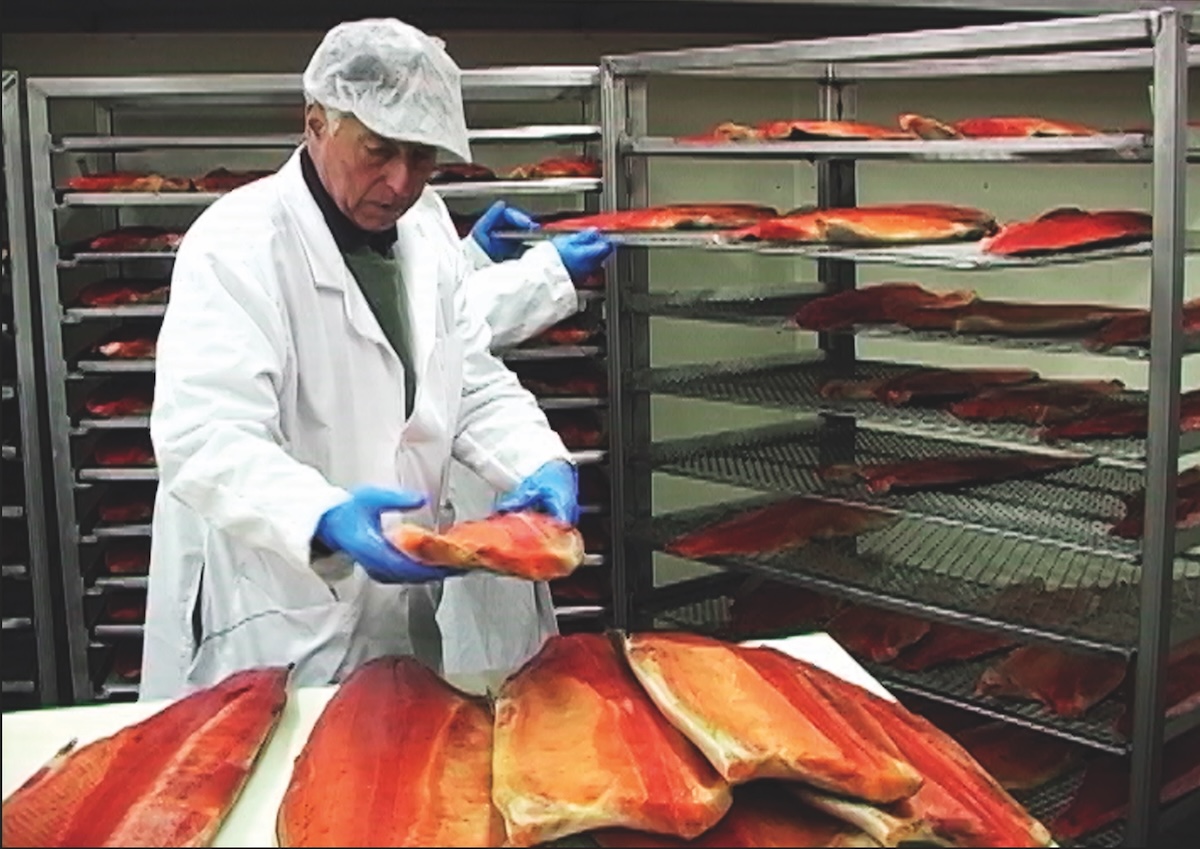
Saul Zabar during an anniversary collaboration with the MTA in 2024 (Marc A. Hermann / MTA) via Flickr
Saul Zabar, the legendary co-owner of Zabar’s and one of the defining figures of the Upper West Side’s culinary landscape, died Tuesday in Manhattan at the age of 97. His daughter, Ann Zabar, confirmed to The New York Times that he had been hospitalized with a brain bleed.
Advertisement
Zabar’s, the iconic food market at 80th and Broadway, has long been a cornerstone of Upper West Side life—and for over seven decades, Saul Zabar was its guiding force. From behind the counters and in the back offices, he helped shape the store’s reputation as a go-to destination for smoked fish, fresh bread, and strong coffee, building something that felt as much like a community institution as a business.Though he initially had dreams of becoming a doctor, Saul returned home from college in 1950 after the sudden death of his father, Louis Zabar, who co-founded the business with his wife, Lillian, in 1934. “I really came into Zabar’s as a temporary assignment,” he told The Times in 2008. That assignment lasted a lifetime.
In the years that followed, Saul partnered with his brother Stanley and, for decades, with marketing mastermind Murray Klein to grow Zabar’s from a small smoked fish counter into a 20,000-square-foot emporium attracting 40,000 customers each week. On the ground floor: coffee roasted in-house, barrels of olives, cheeses from around the world, and fish counters laden with whitefish, sable, and lox. Upstairs: cookware and kitchen gadgets, many offered at aggressively competitive prices that became part of the store’s allure.

Saul and Stanley Zabar, c/o Zabar’s
Advertisement
The store became known not just for its goods, but for the experience. Saul’s office doubled as a coffee-tasting room, and he routinely visited fish wholesalers to inspect their catches. His standards were exacting—so much so that one supplier told New York magazine that Saul once threw a subpar whitefish on the floor and stomped on it in frustration.In a 2007 interview with The New York Sun, Zabar explained his smoked fish philosophy with an elusive yet precise phrase: “It’s got to have taste. Not too this, not too that.”
Take Our Zabar’s History Quiz, Here!
Born in Brooklyn in 1928, Saul Zabar moved to Manhattan when his family expanded its business. As a boy, he served as a lookout on Sundays during a time when there were laws restricting commercial activity. He later attended Stuyvesant High School and graduated from Horace Mann, before heading to the University of Kansas—studies that were cut short by his father’s passing.
Zabar’s success was due in part to an uncanny ability to sense the changing tastes of New Yorkers, and the store became a destination for both loyal locals and curious visitors. While the store’s image remained tied to old-world values—cash registers, handwritten signs, and famously long lines—it also reflected Saul’s philosophy: “We have a modern appearance, but we really do things the way they were done 40, 50, 75, even 200 years ago,” he said in 2012.
Advertisement
Though Zabar’s branded products appeared across the country, Saul never franchised the business. “Money is not why we do this, not why we’re here seven days a week,” he told Edible Manhattan in 2022. “It’s a way of life for us. It’s kind of old-fashioned.”The Zabar family remained closely involved in the business, with daughter Ann and son Aaron both taking on management roles. A third sibling, Rachel, survives him as well. His wife, Carole Ann Kishner, a former Hebrew teacher who later became a lawyer, also survives him, along with four grandchildren and his brothers Stanley and Eli. The youngest of the brothers, Eli Zabar, chose a different path—opening a separate chain of gourmet shops primarily on the East Side. “Eli has always wanted to be able to control his own destiny,” Saul once said. “Whereas we had more of the social ethic of the West Side.”
Despite a few controversies—including the infamous 2011 revelation that Zabar’s “lobster salad” didn’t contain any actual lobster—Saul met challenges with characteristic pragmatism and wit. The salad was eventually renamed “zabster zalad,” a quirky compromise that reflected his sense of humor and brand loyalty.
Through changing tastes, rising rents, and shifting demographics, Saul Zabar remained a constant presence in the neighborhood—an unassuming figure in a polo shirt and khakis, quietly ensuring that the rugelach was fresh, the coffee bold, and the fish just right.

c/o Zabar’s
As he once told CUNY-TV when asked why Zabar’s thrived on the Upper West Side: “That’s where we are. I mean, when Willie Sutton was asked why he robs banks — ‘That’s where the money is.’ We’re on the West Side because that’s where our customers are.”
Have a news tip? Send it to us here!



